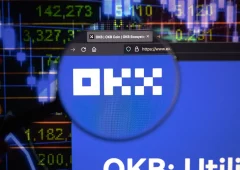Philippines Set to Launch New Stablecoin for International Payments
10.01.2025 22:00 1 min. read Alexander Stefanov
A new peso-backed stablecoin called PHPX is set to launch in the Philippines, developed with the aim of enhancing financial inclusion and streamlining cross-border payments.
The initiative, driven by a collaboration between several Philippine banks, will be based on the Hedera DLT network and is expected to launch between May and July.
UnionBank of the Philippines, along with other financial institutions such as Rizal Commercial Banking, Cantilan Bank, and Rural Bank of Guinobatan, is playing a key role in the creation of PHPX. The project intends to transform the remittance landscape by enabling real-time payments, providing a solution for Filipinos abroad to send money back home efficiently.
As the Philippines relies heavily on remittances—$40 billion were sent back to the country in 2024—the launch of PHPX aims to offer more than just a medium for domestic transactions. It will serve as a tool for seamless international payments and could potentially be used for paying school fees, directly from abroad, with immediate effect.
The stablecoin will also incorporate a multicurrency exchange system for liquidity, allowing users to swap PHPX with stablecoins pegged to US dollars, Singapore dollars, and Japanese yen. The Philippine project intends to ensure full compliance with global regulatory frameworks, leveraging Hedera’s permissioned network for secure, low-risk transactions.
-
1
Ethereum Tops $3,285 for First Time Since January
17.07.2025 7:00 1 min. read -
2
XRP Hits All-time High Amid Regulatory Breakthrough and Whale Surge
18.07.2025 11:14 2 min. read -
3
Trump’s Truth Social to Launch Utility Token for Subscribers
10.07.2025 18:30 1 min. read -
4
Grayscale Reveals Which Altcoins Are Next in Line for Onclusion
11.07.2025 10:00 1 min. read -
5
Arthur Hayes Predicts Monster Altcoin Season: Here is Why
12.07.2025 10:46 1 min. read
Whale Activity Spikes as Smart Money Eyes Reversal Zones
Amid current market volatility, blockchain analytics firm Santiment has reported a notable rise in whale activity targeting a select group of altcoins.
Binance to Launch PlaysOut (PLAY) Trading on July 31 With Airdrop
Binance has officially announced the launch of PlaysOut (PLAY), a new token debuting on Binance Alpha, with trading scheduled to begin on July 31, 2025, at 08:00 UTC.
Cboe BZX Files for Injective-based ETF Alongside Solana Fund Proposal
The Cboe BZX Exchange has submitted a filing with the U.S. Securities and Exchange Commission (SEC) seeking approval for a new exchange-traded fund (ETF) that would track Injective’s native token (INJ).
Bernstein Warns Ethereum Treasuries Pose New Risks
Bernstein has flagged growing risks in Ethereum’s corporate adoption trend, cautioning that the rise of “ETH treasuries” could reshape the network’s supply and risk dynamics.
-
1
Ethereum Tops $3,285 for First Time Since January
17.07.2025 7:00 1 min. read -
2
XRP Hits All-time High Amid Regulatory Breakthrough and Whale Surge
18.07.2025 11:14 2 min. read -
3
Trump’s Truth Social to Launch Utility Token for Subscribers
10.07.2025 18:30 1 min. read -
4
Grayscale Reveals Which Altcoins Are Next in Line for Onclusion
11.07.2025 10:00 1 min. read -
5
Arthur Hayes Predicts Monster Altcoin Season: Here is Why
12.07.2025 10:46 1 min. read


